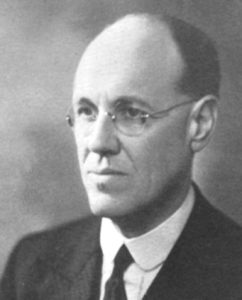In 2012, I travelled in Sichuan province with my pastor’s wife on a research trip to learn about the work of Esther Nelson, a missionary sent from our church in 1925. We called it the Esther Expedition. You can read posts from the trip on my personal blog here.
One weekend we found ourselves in the remote Sichuan town of Huili, deep in the mountains and so remote that it doesn’t even have train or air service. Getting there required driving over four mountain passes. We went to Huili because we knew that Esther Nelson had served there for several years before being forced to leave in 1951.
On Saturday afternoon, we visited with the local Protestant pastor to learn more about the history of his church. In the course of our conversation with him, he told us that he was Lisu, an ethnic minority group in southwest China. He went on to tell us that his grandfather had been converted through the work of a missionary, James O. Fraser.

I thought of him yesterday when I read this article on the site Missions Box, “James O. Fraser: A Missionary Ahead of His Time But in God’s Time.”
James Outram Fraser had an engineering degree and was a talented concert pianist. He was also a faithful follower of Christ who was obedient to God’s calling on his life. He ministered among the Lisu people in China’s Yunnan province from 1908 until his death in 1938.
Neither his name nor his story are well-known to Christians in America. Nonetheless, his approach to missionary ministry was far ahead of his time. So much so that many of his compatriots at China Inland Mission were typically unlikely to espouse Fraser’s style.
James Fraser was quick to realize that the best way to share and spread the Gospel among the Lisu in the remote mountains of southwestern China was to not only engage and evangelize the native people but also to empower them to do the same.
He did everything within his ability to become like the Lisu in customs, culture, communication, and community. If he wasn’t sleeping at night on the floor of a mud hut, he would do so under the stars. Like the Apostle Paul, Fraser became like the Lisu—not superior to them in any way—so that he might win some.
It would be more than 40 years after his demise before modern missions began to grasp the effectiveness and, increasingly, the necessity of establishing indigenous outreach mechanisms.
Missionary agencies often use the humanist approach of secular NGOs to attract funds to the field by focusing their marketing on children. Fraser recognized the scriptural pattern that when a father comes to Christ, the family usually follows. So, he focused on evangelizing the men in the villages.
Just as it was with the Philippian jailor, entire households were accepting the Gospel message. What Fraser witnessed was stunning! When the entire household, beginning with the father, comes to Christ, no one in the family gets ostracized!
Fraser reckoned that communities work the same way, so he also focused on reaching community leaders first. Once they believe, they are not going to run Christians out of town. They are going to share the Good News with the lost.
What Noel and I saw in that church in Huili was the legacy of James Fraser. Here was a third-generation Lisu Christian and pastor that he longed to see reaching others.
A less unexpected place to encounter Fraser’s legacy is, of course in Yunnan province, where he served. In 2018, the China Christian Daily posted a video about a Nu minority village church in the mountains that worships in the Lisu language. We reposted the video here.
Fraser’s legacy is visible in that he is the one who gave the Lisu a written language:
Fraser studied tirelessly. He listened continually. He took copious notes. He prayed until the Lord answered. He created a written Lisu alphabet, taught the people how to read, and began the translation of scripture into their language.
Oddly enough, Fraser learned the language quickly by listening to the children. Inclined as they were to say the same things repeatedly, he came to understand common phrases, idioms, and colloquialisms.
This foundation allowed him the ability to write a book on the history and culture of the Lisu people, a dictionary, a grammar textbook, and a vocabulary book.
A more detailed biography of Fraser can be found at the Biographical Dictionary of Chinese Christianity.
Fast forward a hundred years and many thousands of miles away to Forest Lake, MN, a small town on the northern edges of the Twin Cities metropolitan area. There you’ll find an unexpected glimpse of Fraser’s legacy in the Minnesota Lisu Church of Jesus. Visit the page and you’ll even see the alphabet that Fraser created. I learned about this church at one of my favorite Thai restaurants, which is run by a member of this church. I’m guessing that Fraser never imagined that one day Lisu believers would be worshipping in Minnesota.
But maybe that’s the point. He didn’t have to imagine that. His call was to be faithful. The fruit of his faithfulness was up to God.
Header image credit: The Village Church (Lisu) by Timothy Merrill via Flickr.
Text image credit: Biographical Dictionary of Chinese Christianity.

Joann Pittman
Joann Pittman is Vice President of Partnership and China Engagement and editor of ZGBriefs. Prior to joining ChinaSource, Joann spent 28 years working in China, as an English teacher, language student, program director, and cross-cultural trainer for organizations and businesses engaged in China. She has also taught Chinese at the University …View Full Bio
Are you enjoying a cup of good coffee or fragrant tea while reading the latest ChinaSource post? Consider donating the cost of that “cuppa” to support our content so we can continue to serve you with the latest on Christianity in China.